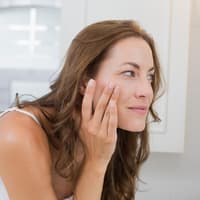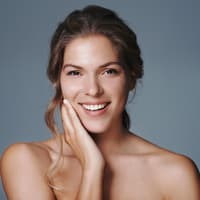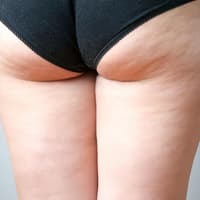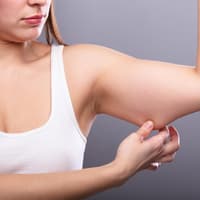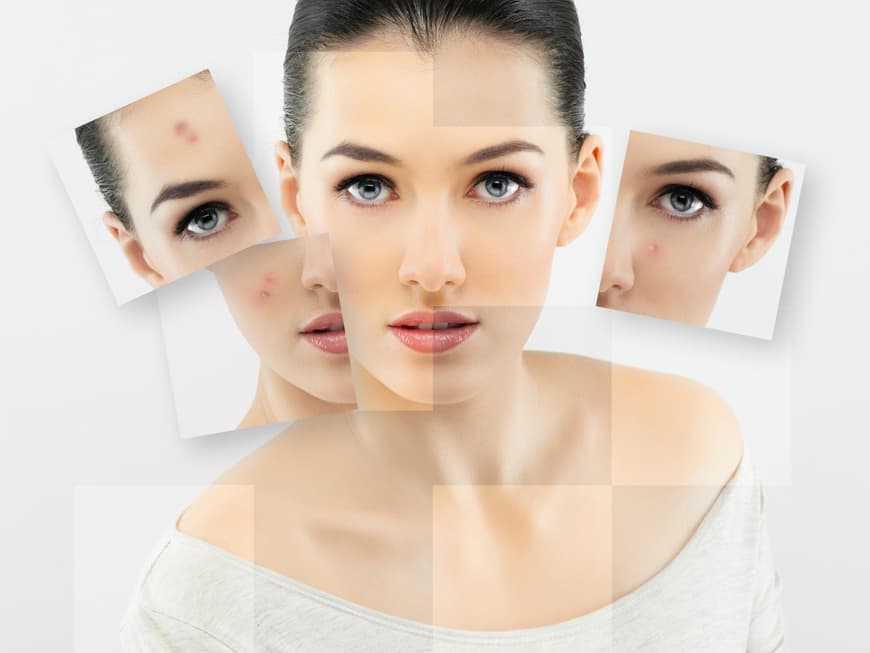
Why late acne occurs during the menopause
Most women enter the menopause around the age of 50 and go through many hormonal changes during this time: They suddenly have trouble sleeping or hot flushes, feel moody or insecure. If there are too many male sex hormones in the blood, the sebaceous glands are also overactive and the pores become clogged more quickly. Incidentally, the sebaceous glands are also the most common cause of late acne in 30-year-olds.
Some people have a special predisposition to overactive sebaceous glands. Or the discontinuation of the contraceptive pill causes the pores to clog more quickly.
By the way: If the pimples do not appear on the cheeks, but rather on the neck and hairline, it could also be stress-related skin changes. You can get the correct diagnosis from a dermatologist.
Which treatments help
There are countless ways to combat late acne. Which method is best suited to improve the appearance of the skin in each individual case depends, for example, on the severity of the symptoms, the skin type and the general state of health. Patients usually need patience until the treatment bears fruit.
Creams with benzoyl peroxide, retinoids or antibiotics must be used for several weeks to make the acne disappear. If side effects such as itching or redness occur, a lower dosage is indicated. In severe cases, a combination with hormone preparations is also possible.
An alternative is treatment with light. Dermatologists have already had good experiences with laser and phototherapy, as good results are achieved after just a few sessions, even in severe cases. However, there are only a few studies on the long-term use of these procedures.
Of course, there are also many alternative medical approaches: Acupuncture, tea tree oil or massages are also said to help against late acne. However, as there are no studies on these procedures, it is not possible to make a scientifically sound statement about their effectiveness.
Proper care for acne skin
Late acne skin needs sensitive care. Soap-free cleansers, for example, are suitable because they are gentle on the skin. However, lotions should only be antibacterial if the skin is not too sensitive. Washing your face twice a day is completely sufficient. More often can even be harmful.
Squeezing out annoying pimples is an obvious thing to do, but can increase the inflammation. If necessary, you can also have pus accumulations removed in beauty salons or dermatological practices.
Sun and diet?
The effect of sun and UV light or certain foods on late acne is controversial. Some patients report that giving up milk, meat or chocolate has led to an improvement in the appearance of their skin. However, this connection has not yet been proven in studies.
The effects of sun exposure are also controversial. Some believe in the positive effects, others fear that it may make acne worse.
Conclusion
Late acne may be annoying, but it is not destiny. There are many over-the-counter remedies that you can try, but you can get sound treatment primarily from a dermatologist.
About our expert Dr. med. Arna Shab
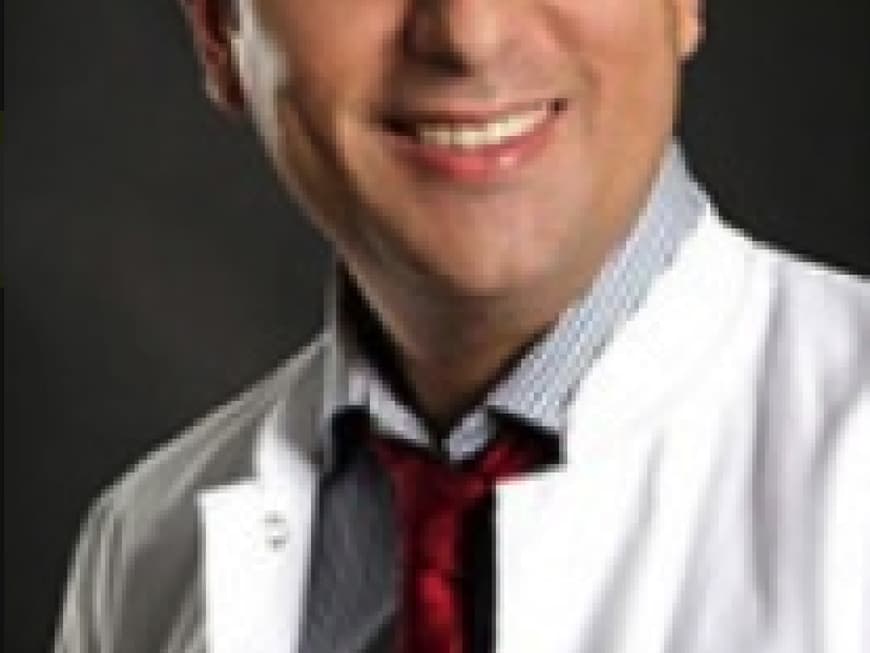
- Dermatologist in private practice in Frankfurt
- Focus on: Wrinkle treatment, outpatient surgery, dermatological and aesthetic laser therapy
Dr. Shab offers classic dermatology and aesthetic services in his practice in Frankfurt. He regularly attends further training courses to keep up to date with the latest developments.He is happy to incorporatemodern techniques such as
laser treatments or computer-assisted procedures into his practice spectrum. Dr. Shab regularly writes for specialist journals and speaks at medical workshops.
You might also be interested in:
5 skincare tips for clear skin during the menopause
Beautiful skin during the menopause
Hormone therapy for menopausal symptoms: Useful or dangerous?
The perfect facial cleanser for your skin type
More beautiful skin: 5 effective tips against oily skin and large pores
Look younger: The right skin care to combat wrinkles

